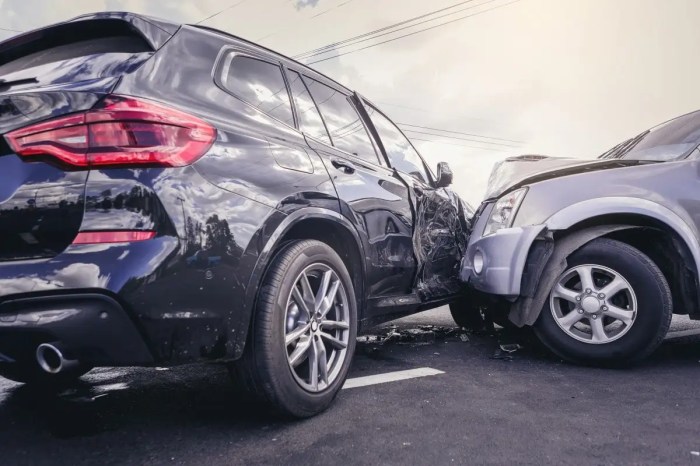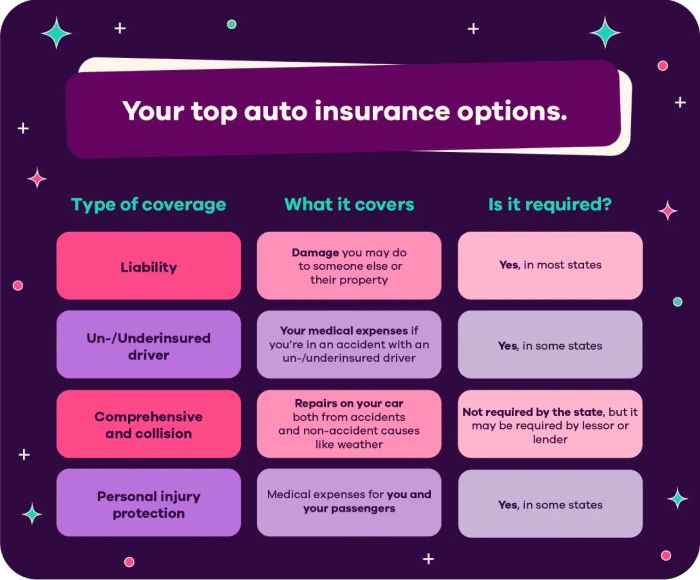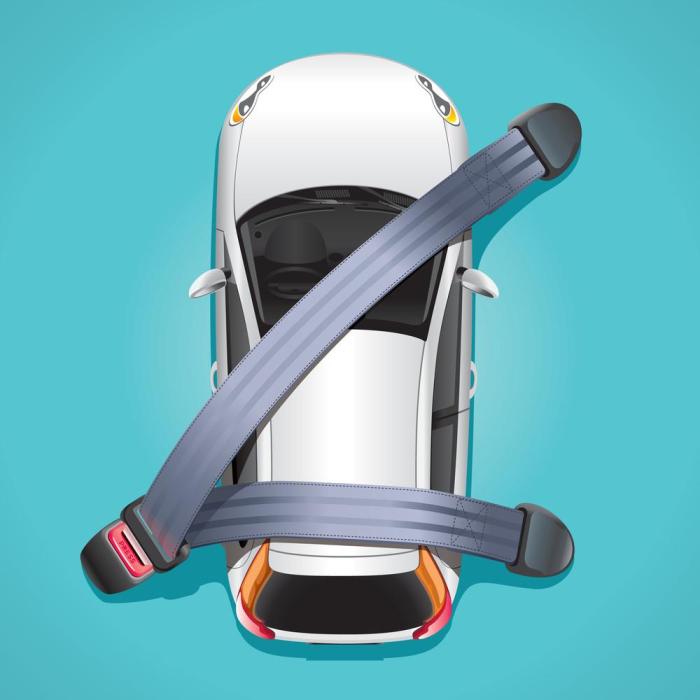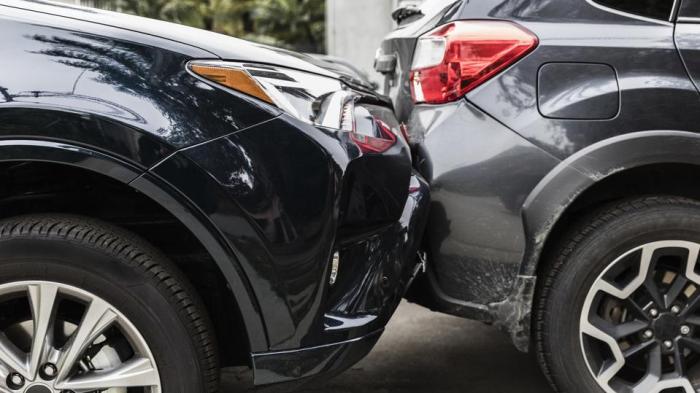What is the difference between liability and collision car insurance in California? Navigating the world of car insurance can feel like driving through a maze, especially when you’re trying to understand the difference between liability and collision coverage. In California, understanding these two types of insurance is crucial, as they protect you and others in different ways.
Liability insurance is like your shield against financial responsibility for damages you cause to others in an accident. Collision insurance, on the other hand, covers the cost of repairs or replacement of your own vehicle if you’re involved in a collision, regardless of who’s at fault.
Understanding Liability and Collision Car Insurance in California

Navigating the world of car insurance can feel overwhelming, especially when you’re trying to figure out the difference between liability and collision coverage. These are two crucial types of car insurance in California, and understanding them is essential for protecting yourself financially in case of an accident.
This article will break down the key differences between liability and collision insurance, explaining what each covers, why they’re important, and how they can impact your car insurance premiums.
Liability Insurance: Covering Your Mistakes
Liability insurance is a crucial component of any car insurance policy in California. It’s designed to protect you financially if you cause an accident that results in damage to another person’s property or injuries to another person.
Liability insurance covers:
- Bodily injury liability:Pays for medical expenses, lost wages, and other damages to the other driver and passengers if you are at fault in an accident.
- Property damage liability:Covers the cost of repairs or replacement for the other driver’s vehicle or any other property you damage in an accident.
California law requires all drivers to have a minimum amount of liability insurance:
- $15,000for bodily injury to one person
- $30,000for bodily injury to multiple people in one accident
- $5,000for property damage
It’s important to note that these are minimum requirements. You may want to consider higher limits of liability coverage, especially if you have a higher net worth or own valuable assets. This extra coverage can help protect you from significant financial losses in case of a serious accident.
Example: You cause an accident that injures the other driver. Their medical bills total $25,000. If you only have the minimum liability coverage of $15,000, you will be responsible for the remaining $10,000. However, if you have higher liability limits, you’ll be covered.
Collision Insurance

Collision insurance is a type of coverage that protects you from financial losses if your vehicle is damaged in an accident, regardless of who is at fault. This means that even if you cause the accident, collision insurance will help cover the cost of repairs or replacement of your car.
It’s an optional coverage, so you can choose to add it to your car insurance policy or not.
How Collision Insurance Works, What is the difference between liability and collision car insurance in California?
When you have collision coverage, your insurance company will pay for the repairs or replacement of your vehicle up to the actual cash value (ACV) of the car, minus your deductible. The deductible is the amount you pay out-of-pocket before your insurance kicks in.
For example, let’s say you have a collision deductible of $500 and your car is damaged in an accident. The repair costs are $2,000. Your insurance company will pay $1,500 (the difference between the repair costs and your deductible) for the repairs.
Factors That Influence Collision Insurance Costs
Collision insurance premiums are influenced by several factors, including:
- Your driving record:Drivers with a clean driving record typically pay lower premiums than those with a history of accidents or traffic violations.
- Your car’s make and model:Some cars are more expensive to repair or replace than others. For example, a luxury car will likely have higher collision insurance premiums than a basic sedan.
- Your age and gender:Younger drivers and males tend to have higher collision insurance premiums than older drivers and females.
- Your location:Collision insurance premiums can vary depending on where you live. For example, areas with higher rates of traffic accidents tend to have higher premiums.
- Your coverage limits:The amount of coverage you choose will also affect your premium. Higher coverage limits typically result in higher premiums.
Key Differences between Liability and Collision Insurance

So far, we’ve discussed the basics of liability and collision insurance in California. Now, let’s dive deeper into the key differences between these two types of coverage.
Comparing Liability and Collision Insurance
Understanding the key differences between liability and collision insurance is crucial to making informed decisions about your car insurance needs. Here’s a table that summarizes the essential aspects of each coverage type:| Coverage Type | Coverage Scope | Cost Factors | Applicable Situations ||—|—|—|—|| Liability Insurance | Covers damage to other people’s property or injuries to others in an accident caused by you.
|
- Your driving record
- Age and gender
- Vehicle type
- Location |
- When you are at fault in an accident that causes damage to another person’s vehicle or property
- When you are at fault in an accident that results in injuries to another person |
| Collision Insurance | Covers damage to your own vehicle, regardless of who is at fault. |
- Your driving record
- Age and gender
- Vehicle type
- Location
- Deductible amount |
- When you are involved in an accident, regardless of who is at fault
- When your vehicle is damaged by a non-collision event (e.g., a falling tree, hail) |
Situations Where Liability Insurance Alone May Not Be Sufficient
While liability insurance is mandatory in California, there are situations where it alone may not be enough to cover your financial responsibilities. For instance:
- You are at fault in an accident that causes significant damage to your vehicle.Liability insurance won’t cover the cost of repairs to your own car.
- You are involved in an accident with an uninsured or underinsured driver.Liability insurance will only cover the damages up to the limits of the other driver’s policy, which may not be enough to cover your expenses.
- Your vehicle is damaged in a non-collision event.This could include events like a hailstorm, a falling tree, or vandalism. Liability insurance does not cover these types of damages.
In these situations, collision insurance can provide essential protection for your financial well-being.
Ending Remarks: What Is The Difference Between Liability And Collision Car Insurance In California?

Knowing the difference between liability and collision insurance is key to making informed decisions about your car insurance coverage. It’s like choosing the right tools for the job – liability insurance protects you from financial burdens to others, while collision insurance safeguards your own vehicle.
Always consult with an insurance agent to determine the best coverage for your specific needs and financial situation.
Q&A
What happens if I only have liability insurance and get into an accident?
If you only have liability insurance and get into an accident, your insurance will cover damages you cause to others, but it won’t cover repairs to your own vehicle. You’ll be responsible for those costs out of pocket.
How do I know if I need collision insurance?
Consider the value of your vehicle, your financial situation, and your driving history. If your car is relatively new or expensive, collision insurance might be a good idea. It’s also worth considering if you have a history of accidents or drive in a high-risk area.
Can I adjust my insurance coverage after I get a new car?
Yes, you can adjust your insurance coverage after getting a new car. It’s a good idea to contact your insurance agent to review your policy and make sure it aligns with the value and features of your new vehicle.
